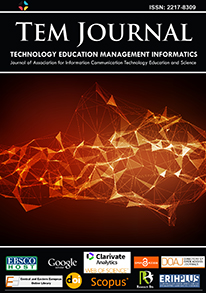Two Decades of Project-Based Learning in Engineering Education: A 21-Year Meta-Analysis
Two Decades of Project-Based Learning in Engineering Education: A 21-Year Meta-Analysis
Author(s): Hendra Hidayat, Muhammad Anwar, Dani Harmanto, Fitrika Kumala Dewi, Chibueze Tobias Orji, Mohd Rizal Mohd IsaSubject(s): Education, Electronic information storage and retrieval, Pedagogy
Published by: UIKTEN - Association for Information Communication Technology Education and Science
Keywords: Project-based learning; engineering education; higher-order thinking skills; meta-analysis;
Summary/Abstract: The implementation of project-based learning (PjBL) has contributed to improving students’ learning outcomes. However, strong evidence specifically linking PjBL to the improvement of students' higher-order thinking skills (HOTS) is still limited, especially in engineering education. Hence, this study aims to uncover the impact of PjBL on students' HOTS through a meta-analysis. A total of 16 studies were sourced from ACM, Dimensions, IEEE, Science Direct, Scopus, and WOB metadata, with a search time ranging from 2003 to 2023. Data sourced from relevant literature were analyzed using a random-effects hedge model in JASP software. The results showed that the application of PjBL had a significant impact, rRE (0.315), or 31.5% on students' HOTS in the context of engineering education. Furthermore, there was no publication bias in the analysis of the studies. Meanwhile, the review of moderator variables showed that PjBL is most frequently implemented in Eastern cultures, particularly in computer science subjects, and the most common method for measuring skills is through test scores. Generally, the integration of PjBL into the learning process could effectively improve students’ HOTS.
Journal: TEM Journal
- Issue Year: 13/2024
- Issue No: 4
- Page Range: 3514-3525
- Page Count: 12
- Language: English

